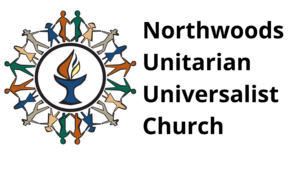Change is hard! There will be bumps on this road, and we should resist the urge to strive for perfection. Our congregation is not what it was a year ago, five years ago, or twenty-five years ago. It is constantly evolving as new faces come through the door and our environment changes around us.
The power shift must be acknowledged. In decentralizing power by giving teams more autonomy, power shifts from those who have traditionally held a lot of power to those who now need to step up and take on more responsibility. Those in power may worry that others won’t step up. If we agree to move to this model, we must plan for this shift. Here are some examples of how we could address concerns about sociocracy as a governance model:
| Embedded Thought | Open-Minded Approach | How to Get There |
| I’ve run this committee for a long time, it runs well, and I don’t want to take the time to explain that to anyone else. | I might decide I want to do something else one day or take on a smaller role. | Consider that you can spend less time in a role, still have the impact you desire, and that others are valued and can be trusted. |
| Writing things down takes too much time and/or I’m not good at it. | Someone in the circle might be great at it and would prefer that role over others. Writing things down creates transparency. | It’s okay to accept help and acknowledge all of us aren’t great at everything. |
| This church process runs well because we don’t discuss it. It doesn’t need more input, that will muddy the waters. | Blending old and new elements will provide stability but allow for growth. | Have faith in the democratic process; it is one of our core values. |
| We don’t have enough people to be in all these circles. | We might not need as many circles. We have 160+ members who care enough about our church to contribute financially—they are who owns our church and therefore should have a say in how it runs. | Leaders can ask who’s interested in being a part of your circle. Folks could all be part of at least one circle. |
| It’s less efficient to overlap with other circles. | Efficiency is important, and so are diverse contributions. Also, efficiency can mean that we keep doing things one way because it’s gotten easier. Easier does not always mean better. | Efficiency and getting more opinions don’t have to be diametrically opposed if done in a quick, clear process. It can be positive to disrupt long-standing processes. |
| Too many meetings will slow us down. | There are many ways of communicating between and within circles: it doesn’t have to be a meeting. | Continue with the existing meetings you have and adopt discernment rounds for decision making. If you don’t have meetings, consider a quarterly meeting. |
| I don’t like working in groups. | Other viewpoints and ideas don’t mean mine are invalid. | Try working with one or two partners at first. Listen to others assuming good intent. |
| No one is in charge. | There is a designated leader (and a delegate) in every circle. Those leaders are accountable to each other (for the large circles, as part of the coordinating circle; for the smaller circles, to their tangential circle(s)). | Having one leader in the past has at times slowed us down and created a power dynamic that may not have best served us. |
| I don’t want to be in a circle; I don’t want to do any work. I like coming to church and I don’t have time for more. | I share my time with Northwoods at least several hours a month to come to service; I want to spend additional time making sure this place I love continues to exist. | Commit to one hour per month in one circle. See how it feels, and then re-evaluate your position. |
